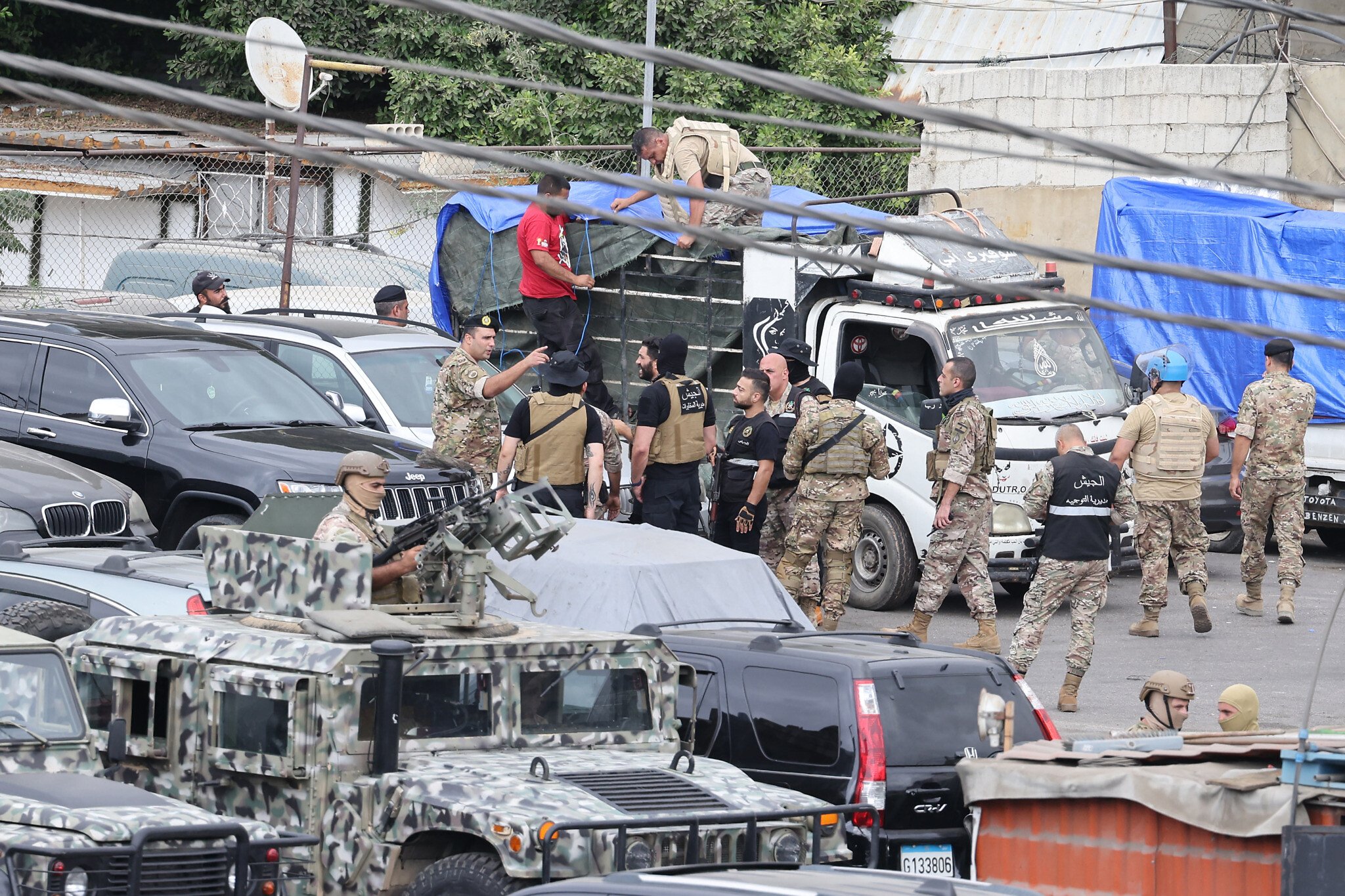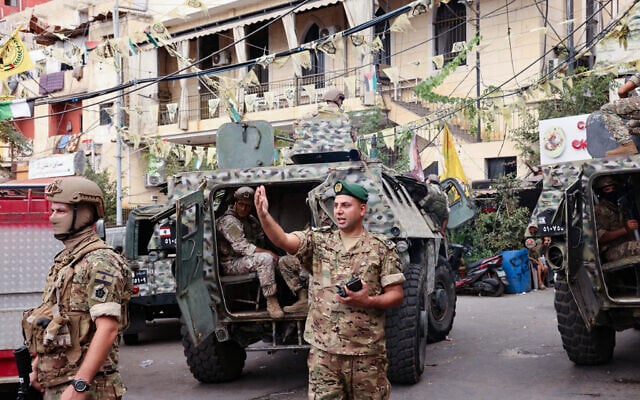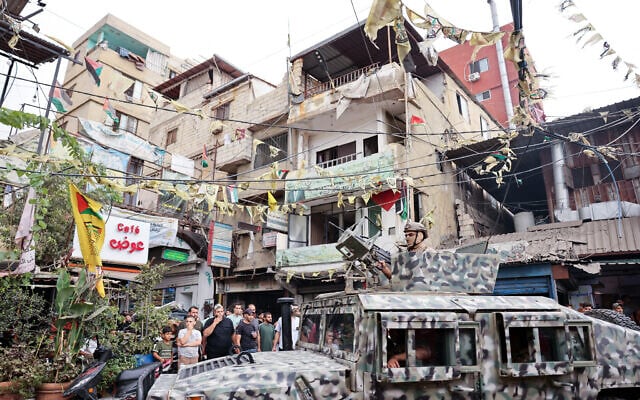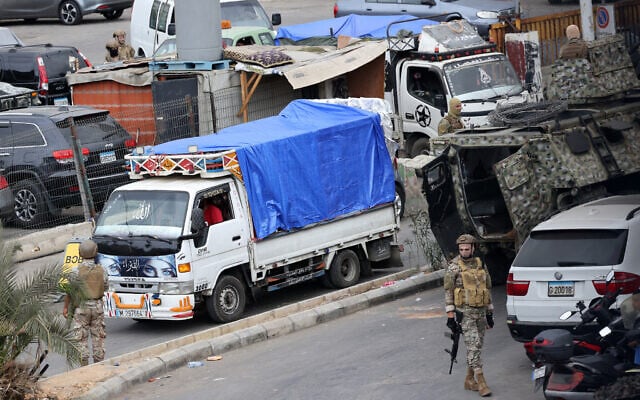



Palestinian factions in several Beirut refugee camps surrendered their weapons to the Lebanese army on the weekend, an official said, as the government works to disarm non-state groups.
Ramez Dimashkieh, chairman of the official Lebanese-Palestinian Dialogue Committee, told AFP Friday that “the Palestine Liberation Organization handed over three truckloads of weapons to the Lebanese army,” including rockets and heavy weapons.
One truckload came from the Mar Elias camp and Shatila camps, and two from the Burj al-Barajneh camp in Beirut and its suburbs, he said, adding that “this completes the process of handing over” PLO weapons from the Beirut camps.
At the entrance to the Burj al-Barajneh camp, AFP correspondents saw large wooden crates being moved to a nearby parking lot where soldiers inspected them before transporting them away, as troops deployed heavily to the area.
The official National News Agency had earlier reported the arrival of army vehicles in the camp “to receive a new batch of Palestinian weapons.”
During a visit to Beirut in May, Palestinian Authority President Mahmoud Abbas and Lebanese President Joseph Aoun agreed that weapons in Lebanon’s Palestinian refugee camps would be handed over to the Lebanese authorities.
The implementation of the deal began last week as Abbas’s Fatah movement surrendered weapons in Burj al-Barajneh camp.
Abbas’s Fatah is the most prominent PLO faction. Palestinian terror groups Hamas and Islamic Jihad, which are allied to Lebanon’s Hezbollah, are not part of the organization.
Dimashkieh said Friday that “there are still other factions that have not surrendered their weapons, but the process has started.”
On Thursday, PLO factions handed over heavy weapons in south Lebanon’s Rashidieh, Al-Bass and Burj al-Shemali camps, the Lebanese-Palestinian dialogue committee said.
The move to collect the Palestinian factions’ weapons comes as the Lebanese army draws up a plan to disarm Hezbollah by the end of the year.
The plan, which is to be presented to the cabinet by the end of the month, was commissioned by the government under heavy US pressure and amid fears of expanded Israeli military action.
Hezbollah last year fought a bruising war with Israel that ended in a ceasefire in November. Hezbollah has been under domestic and international pressure since then to give up its remaining arsenal, which it has so far refused to do.
Implementation of the plan for the Palestinian camps was delayed amid disagreements among and within the various Palestinian factions operating in Lebanon over the mechanism for handing over the weapons.
Hamas and other armed factions were involved in firing at Israel from Lebanon with the start of the Gaza war and the ensuing conflict between Israel and Hezbollah, which a November ceasefire sought to end.
The ceasefire stipulated that only the Lebanese military would bear arms and that all forces would withdraw from the country’s south, with the exception of the army and UN peacekeepers.
Israel has continued to strike Lebanon in cases where it sees Hezbollah violating the ceasefire, and its troops still hold five positions in the south that it deems strategic for its defense.
Earlier this month, US envoy Tom Barrack said following Beirut’s commitment to disarm Hezbollah, it was Israel’s turn to make good on its side of the ceasefire, apparently referring to the retreat of troops back into Israel.
US network Axios reported that US officials had asked Israel to temporarily cut back on strikes in Lebanon deemed “non-urgent” and pull troops from one border point, as a show of good faith in support of the Lebanese effort.
Though officials doubt Beirut is strong enough to forcibly disarm Hezbollah, they hope Israel’s move will help give it the needed maneuverability to seize the terror group’s weapons.
Times of Israel staff contributed to this report.



